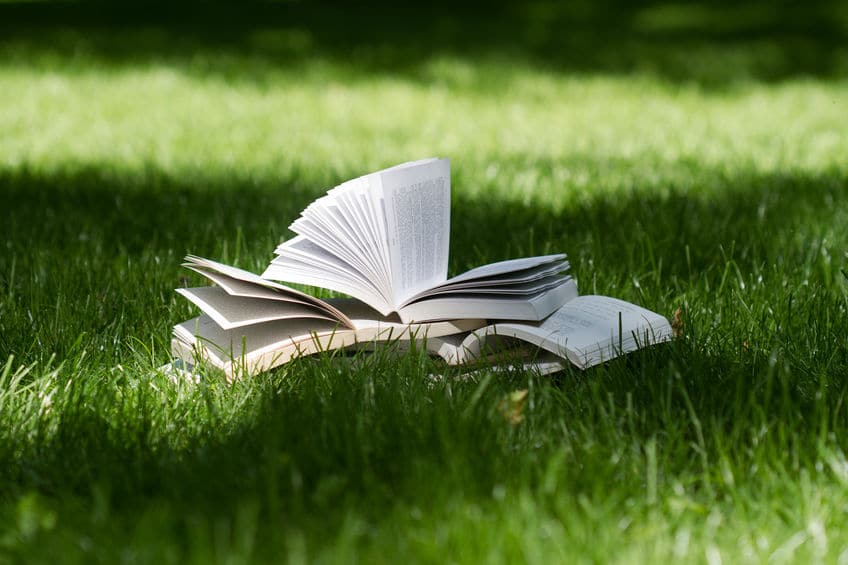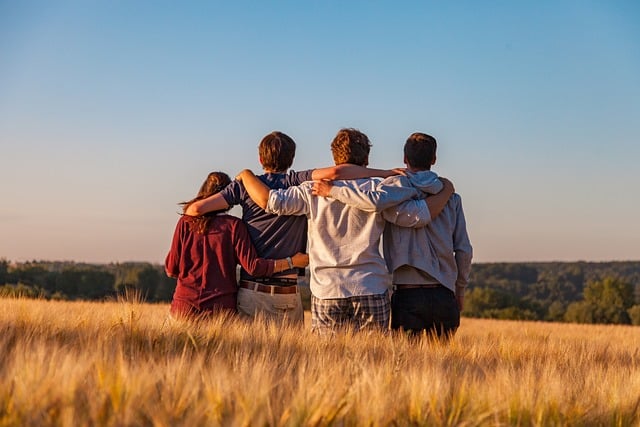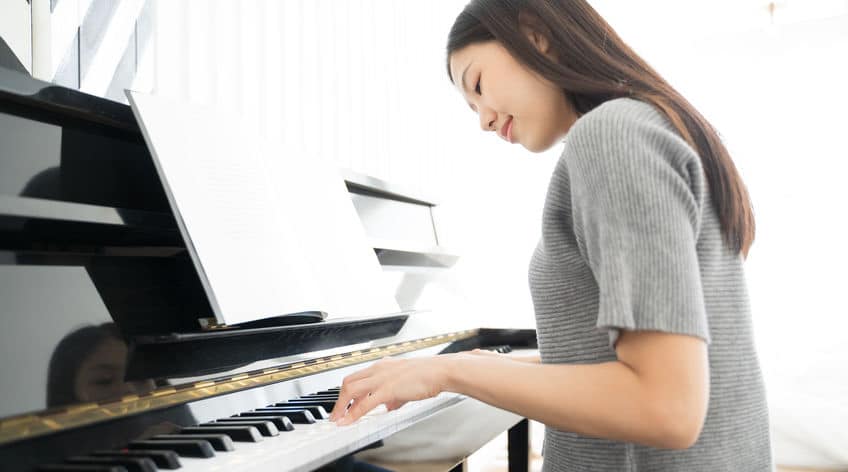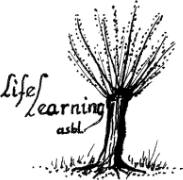Birth of the project
With several parents of students, we were confronted (unwillingly) with a difficult observation: traditional school did not offer our children the pleasure of learning. So, we sought to discover other paths to knowledge and personal fulfillment with them. For 3 years, we gathered with several families to allow our children to be educated at home, in a supportive atmosphere.

We are happy to see today that after a good self-empowerment work, our children have blossomed by finding meaning in their education. Those who decided to pursue university studies immediately found their place in this new environment.
Other families wanted to join us, and we found ourselves cramped. The creation of the Life Learning nonprofit association now allows us to have the necessary premises to come together in a green setting conducive to discovery and open to the essential values of sustainable development.
An original approach
Purpose of the nonprofit association
The primary purpose of Life Learning is to offer a space for a few young people to reconnect with the pleasure of learning. It is a project aimed at rebuilding self-confidence for those who feel tired by the school system and who dream of a place where they can learn at their own pace.
Most young people who join us have great curiosity and a lively mind that astonishes or intrigues those around them. They often experience special sensitivity, emotions (and even fears) that hold them back, but they have the courage to try an alternative approach to learning and dare to be themselves. They learn to journey together with kindness towards each other.
Respecting everyone’s “bio-logical” rhythm, rediscovering quality of life, and creating a relaxed atmosphere enhance their learning capacity while freeing up time to develop their hidden potential. Each student and their family contribute to the success of the project through a participatory approach and giving to others, respecting each person’s skills, passions, expectations, and limits.


Within the nonprofit association, daily coaching is offered to the teenagers, both in group and individual settings.
We encourage students to collaborate with each other. Together (in pairs or trios), they study the subjects they have chosen with the help of a coach to prepare for the ‘Examencommissie’ (Central Exam Commission) or other exams. Everyone’s program is developed considering the schedules of others to align deadlines as much as possible. Each person benefits from the group’s energy to memorize, question, and stimulate each other.
We seek to foster “symbiosis” among young people. Awareness of individual needs is encouraged to promote self-empowerment. Personalized coaching is put in place to accompany this process, optimize concentration during study time, and enable each person to become a fulfilled adult.
We attach particular importance to respecting various fundamental needs such as food, breathing, sleep, physical exercise, socialization, non-violent communication, safety, stress management… These directly influence our physical, mental, and spiritual health. By listening to and respecting these needs, we become more autonomous and happier.
For this reason, we organize:
– A healthy collective organic meal without excessive sugar, additives, alcohol, or energy drinks
– Workshops on breathing/meditation/yoga/non-violent communication…
– Debates on addiction, screens, confinement…
Each person finds their own rhythm. The need to move, change ideas, and moments of fatigue are considered (hammock, relaxation room, billiards…), which helps to break free from certain stigmatizing “labels” (lazy, hyperactive, distracted, autistic…).
A broader coaching approach with parents is also implemented to better understand the root causes of educational disengagement and to support families in their deep relationship with their adolescent. When necessary, we refer students to external therapists, as Life Learning does not provide individual psychological support.

Project Specifics
The families speak French, Dutch, and/or English. Conversations take place in one language or another depending on the subject and the accompanying individuals present. Young people gradually learn to become trilingual.
The day, which usually runs from 9 am to 4 pm, is interrupted by a long lunch break. It is during this time that we develop our abilities to share, express ourselves, and listen to each other. Young and older people come together for a friendly meal in a family-like atmosphere. It is not uncommon for passionate conversations to explore philosophical questions, social challenges, historical events, or current political issues.
Even during breaks, neurons are stimulated in a relaxed tone. Art therapy activities through singing, theater, and/or drawing are organized in the afternoon, as well as bodywork through small workshops on breathing/meditation/stress management. Students are free to participate or not (but strongly encouraged to do so to discover their talents and grow outside their comfort zone).
Parent meetings are important for understanding and family integration of this new “home-schooling” learning dynamic. They take place at least 4 times a year.
Enriched by our experience, we can only see the importance of continuing to learn. For this reason, we also organize small informal educational evenings on various topics related to our functioning and everyday life experience. Parents and friends will be widely invited to participate in our “Life Learning Talks“.
Our nonprofit association also offers opportunities to get involved in collective projects related to permaculture in its large vegetable garden, to explore together and foster a collective spirit. Projects such as food forests, beekeeping, and equine therapy are also emerging.

Life Learning also provides two pianos (one electronic and one grand) for moments of relaxation, as music is an integral part of personal development.
Our Values

What underlies our work method is the belief that every person, every human being intrinsically wants to learn, even if a bad experience seems to have extinguished that flame. This is at the very core of our pedagogy. We draw our references from the pedagogy of Maria Montessori and Sudbury Valley in the USA.
If the surrounding conditions are favorable, this deep aspiration for knowledge can be surprisingly rekindled. This reclaiming of the ability to focus on a life goal leads to the readjustment (cascading) of other imbalances. Many testimonials confirm the positive effects of this self-empowerment on sibling relationships.
This is why we give major importance to the autonomy of the students in this process. Everyone rebuilds themselves through their own experiences in the friendly and secure atmosphere of a small group rich in empathy.
